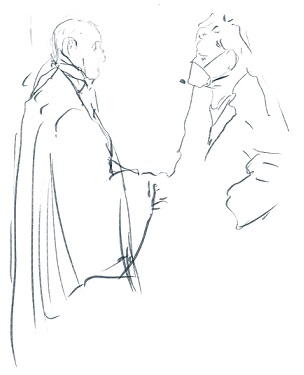
Interviews
Title
Interview with Bishop Tobin
Document Type
Article
Abstract
Bishop Tobin, how did you experience the pandemic personally and the Church?
“Personally, I suppose like many other people, I experienced some inconveniences and frustration but, thank God, I didn’t have any serious problems. For the Church, it was a challenging and difficult time, and something that we weren’t prepared for, as an institution. Nobody was. It’s something that we had to respond to on a step-by-step basis depending on what the local circumstance were like. We certainly wanted to cooperate with the medical and government authorities because the health of people and the common good and the wellbeing of our society was at stake. We wanted to cooperate any way possible.”
It was a challenging time for church, we had to effectively close churches although our buildings were never closed but we didn’t have public services for a long time and then only limited in terms of number of people but overall thank God the priests did a great job and our people were very understanding and very patient.
The Cathedral of Saints Peter & Paul in downtown Providence is the central Church of the Diocese of Providence (which is coterminous with the State of Rhode Island). It attracts many visitors and is the location for special events such as ordinations of priests, Catholic high school graduations, Youth Ministry Awards, etc. In addition, it is also its own parish with a small core parishioners.
Mixed blessing
“We have 130 parishes in the Diocese -some are very large suburban, some historic churches, some rural little places. Not all churches did live-streaming, I think probably the majority did in the end live streaming, we didn’t measure that.”
“One the hand, it was very helpful for people; they could still watch the religious services at home in a familiar setting because it was their own parish Church. But one negative aspect was that people became too comfortable with that. It’s easier to stay at home in your pajamas on Sunday morning than getting dressed and go to church. It was a mixed blessing. Overall, it was a good experience as it allowed there to still be some contact between our pastors and our people even though it was not perfect.”
Livestream
Going forward, is livestreaming something you would encourage?
“We have not had a diocese approach to that, it pretty much depends on the local parish. There is a diversity of approaches, some of the pastors want to continue doing that because is a way to reaching the people wo are shut in and can’t get out of their homes. Other pastors have said no, we no longer need to do this. You should be coming to church in person. It is a split opinion.”
Pandemic responses
“We didn’t use choirs during the pandemic to not spread the aerosols. Hymnals were removed in all of our churches at beginning of the pandemic. Some have put back in the pews. As diocesan policy, it’s no longer a restriction. Same with Holy water. At the beginning of the pandemic, it was instructed not have Holy water available. I would think most churches have that again. It is an important symbol for the Catholic Church.”
Communion is a crucial part of the Catholic mass. Some Protestant churches have improvised, or provided grape juice and bread for pick up.
“No, that would not be an acceptable approach. You hit the nail on the head. One of the primary reasons for people to attend mass in person on Sundays is to receive holy communion. Which they cannot do at home. They can watch it on tv or a computer screen. They can listen to readings of the bible or the sermon, or hear the music. But they can’t be present participate with the rest of the community, have that interpersonal contact and receive holy communion. That can’t happen through livestreaming. That’s the principal reason to attend holy mass.”
Transformation
Have the pandemic and its restrictions transformed the church or were they just obstacles?
“A little of both. Pope Francis wrote his reflections about the Church after the pandemic in ‘Let us Dream’. Basically, he says we could not stay the same. We could be better, or we could be worse. And it’s in our hands to make a difference. The pandemic has taught us how we are related to one another. If we can take advantage of that now, having learned that from the pandemic, then we will be a better stronger human community in the world. His point is we can’t go back to the normal systems and activities and policies, even our economic, political level. We have to learn from this and come out better people than we were before.”
“They say never let a good crisis go to waste. The pandemic created challenges but also opportunities. A lot will depend on what we do with it, how will we respond, how will we act?”
Cathedral of Saints Peter & Paul
Bishop Thomas Tobin and Michael F. Kieloch, Director of Communications and Public Relations, Diocese of Providence.jpg (352 kB)
Bishop Thomas Tobin and Michael F. Kieloch, Director of Communications and Public Relations, Diocese of Providence
Interview with Bishop Thomas Tobin.jpg (308 kB)
Interview with Bishop Thomas Tobin
eucharistquote.JPG (73 kB)



Comments
When the pandemic hit, the Bishop issued a dispensation from attending Mass. On Sunday, June 6, 2021 the Sunday Mass Obligation in the Roman Catholic Diocese of Providence was restored.